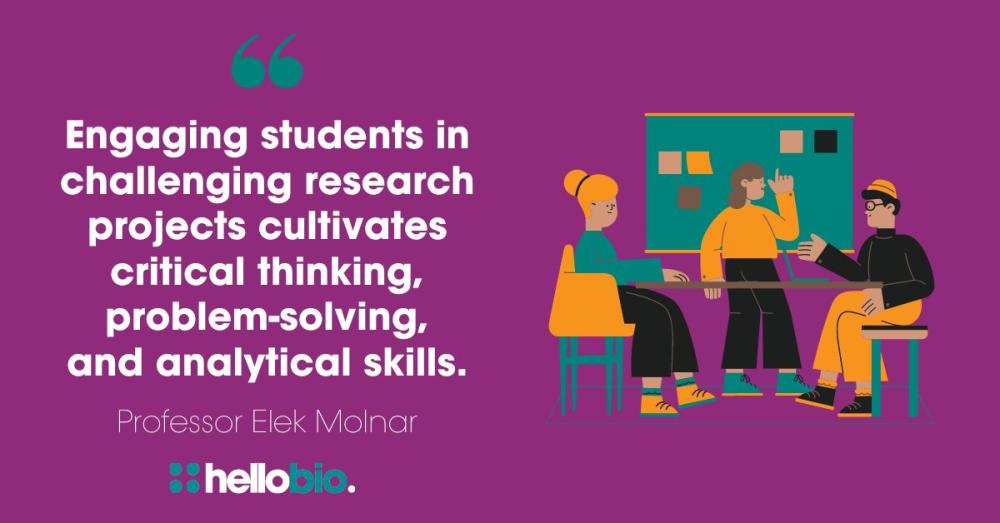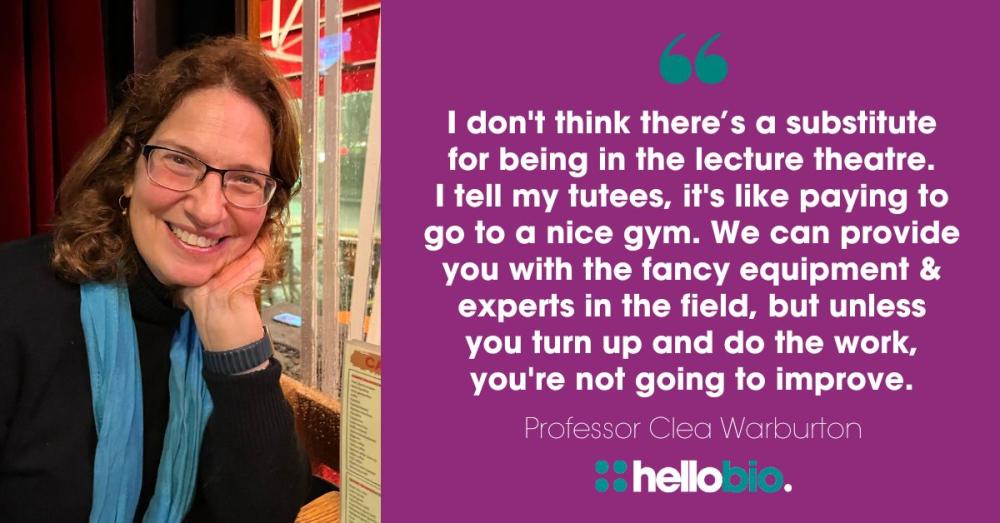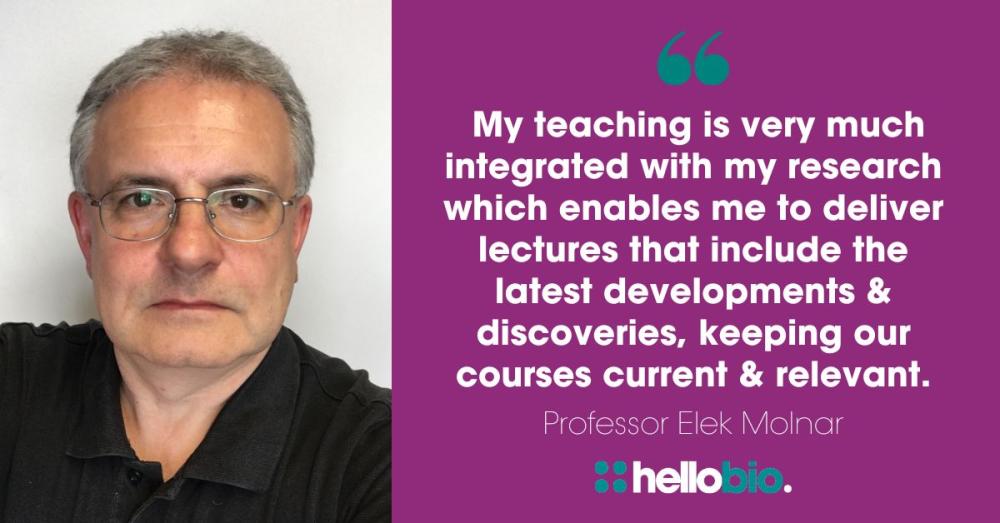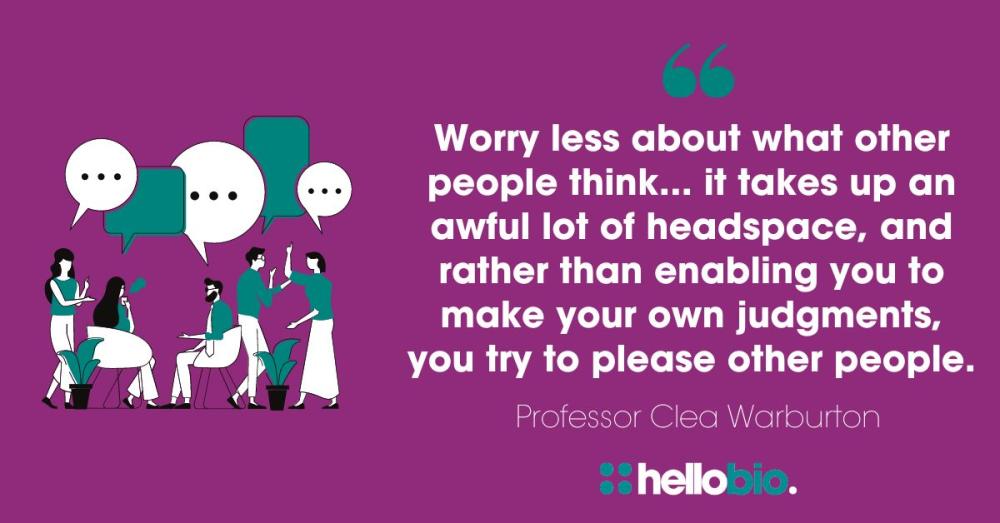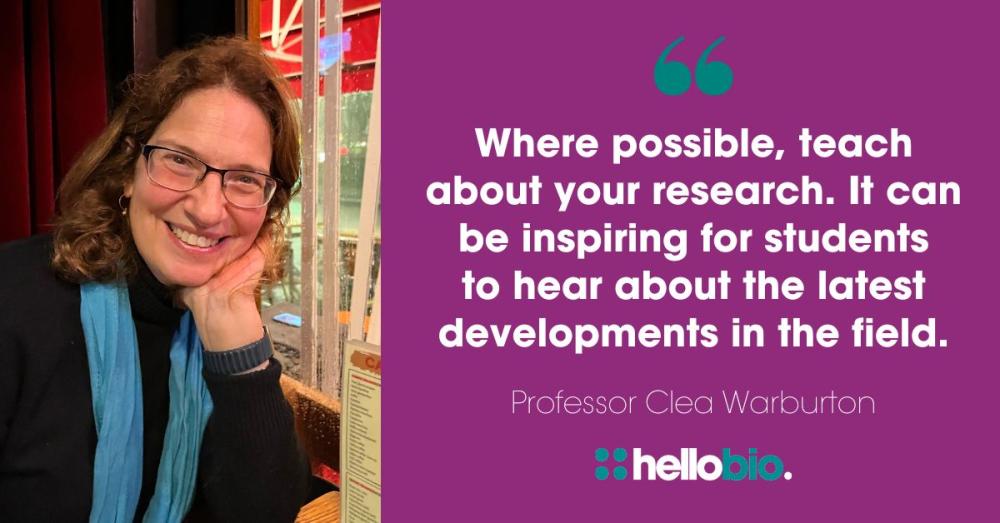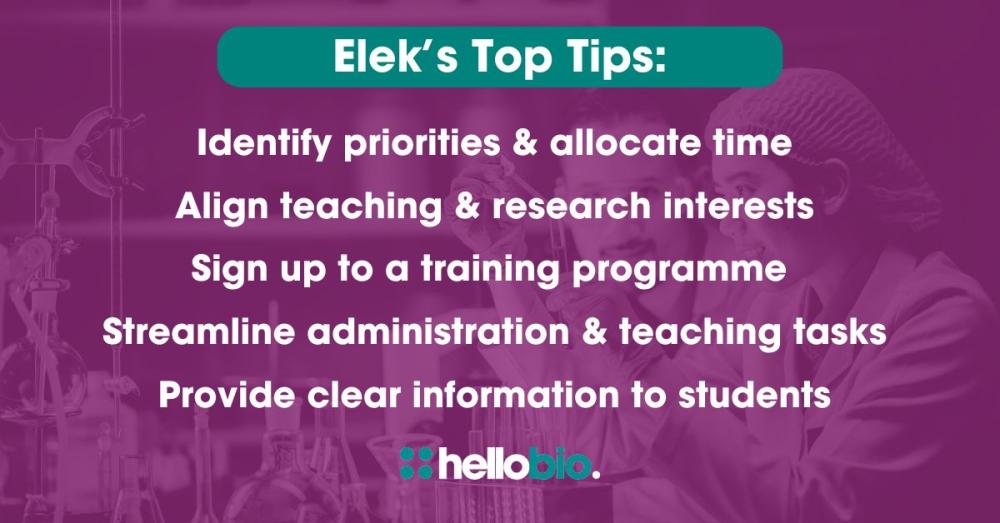Balancing Research and Teaching in Academia
Whether you are considering pursuing a career in academia, or you are already an Early Career Researcher (ECR), learning how to balance teaching and research is important. Any senior academic role will most likely involve a mix of teaching commitments as well as dedicated research work. As with any job, it's important to educate and train the people who will one day be following in your footsteps. Academia is built upon collaboration and learning, enabling scientific discovery to progress and develop. However balancing research and teaching can create many challenges; from variations in workload to conflicting priorities.
We got in touch with Professor Elek Molnar and Professor Clea Warburton from the University of Bristol, to hear about their experiences of working in academia and they share their top tips for finding the right balance between teaching and research!
Professor Elek Molnar is a Professor of Neuroscience at the University of Bristol and is also a member of our Scientific Advisory board.
Elek's research focuses on the underlying molecular mechanism of synaptic plasticity which is related to learning and memory and how information is stored in the brain. He is particularly interested in developmental and activity dependent changes in the molecular organisation, signalling, distribution and function of glutamate receptors, which are the major excitatory neurotransmitter receptors in our central nervous system (CNS). As International Director for the Faculty of Life Sciences he often interacts with fascinating people from all over the world, and he enjoys collaborating with colleagues and working with very talented students
Professor Clea Warburton is the Deputy Head of the School of Physiology, Pharmacology and Neuroscience at the University of Bristol and Program Director for the Psychology and Neuroscience MSci program.
Clea leads a team of researchers looking at how different memories are formed, stored and retrieved. She is interested in understanding interactions between different brain regions when different types of information were learnt and retrieved.
The rewards and challenges of academia
We began by asking the professors to tell us a little about their work, and the challenges and rewards that come with a senior role in academia:
Elek: “I supervise several research projects for undergraduate and postgraduate students, which helps me to stay up to date with the literature. Engaging students in challenging research projects cultivates critical thinking, problem-solving, and analytical skills. I put major emphasis on the understanding of the applications and limitations of different methodological approaches combined with the development of practical research skills.
I really enjoy the weekly progress discussions with my project students, they are always full of interesting ideas and questions and their enthusiasm is contagious. Usually in our research we tend to focus on a specific topic and over time we develop tunnel vision.
Teaching helps us to broaden our horizon because often we need to cover several areas and keep up with new developments beyond our specific projects. These interactions with students can lead to new research questions and perspectives, as students often bring fresh insights and inquiries. This symbiotic exchange ensures that education and research continually inform and enhance each other."
Clea: “The overall reward of a role like this comes from making a difference (big or small), such as helping students appreciate the complexities of brain function, especially as it relates to my research or seeing my pastoral tutees, who I have known since they started at the University through to graduation. Of course, it is also really rewarding to get an exciting result in the lab, or a paper published!
Getting funding for research can be tough though, and you have to be resilient in order to put in applications that may well get turned down, not necessarily because the science is flawed, but because funds are limited. It can also be challenging to manage the competing demands of being an academic, as we want to be excellent lecturers and excellent researchers, and manage the administration of the courses, and there are difficult pinch points within the academic year. Doing it all at a high level can be tough, and very stressful.”
An ever-changing role
Clea told us how teaching responsibilities have changed over the years, and why ongoing training is essential for keeping on top of the latest educational trends:
Clea: “There used to be little formal teaching training. However, now there is a recognition that teaching isn’t just something that you do as an add on to your research, as it is so important.”
“As well as two levels of teaching qualifications (depending on how much teaching experience you have) we also have peer observation of teaching. There is also continuous training which is necessary because teaching advances in terms of the technology we can use. When I started, we used slides and acetate sheets with an overhead projector. Now of course, we’ve got PowerPoint, Padlet, and electronic quizzes.
I think all the way through our careers we should have refresher training to get us up to speed with the latest teaching developments and techniques. I'm what's called a Pathway One academic, which means I do research, teaching and admin. But there are some Pathway Three colleagues whose career is around teaching, and they're doing more pedagogic research. They are the experts putting forward new teaching approaches.”
She also told us about the challenges of delivering engaging and informative lectures, and why nothing beats in-person teaching:
Clea: “I still get anxious when giving lectures, because essentially you're performing. You're standing up in front of potentially 100s of students, and so you need to project your voice, try to hold the audience and also put in something that the students might find interesting. However you are also giving accurate information that students can understand, and so getting the details right is really important.
Although teaching technology has advanced, and all lectures are now recorded, I don't think there is a substitute for being in the lecture theatre. Sometimes I say to my tutees, it's like paying to go to a nice gym. We can provide you with all the fancy equipment, experts in the field, but unless you turn up and do the work, you're not going to improve.”
Managing a busy schedule
We asked about Elek's schedule and he told us why it's important to make time for colleagues, even when workloads are particularly heavy:
Elek: “Overall, I spend about equal time with teaching and research. However, there are periods during the academic year when I have to prioritise teaching or exam marking and there is very little time for anything else. Even during these busy periods, I always set aside a bit of protected time for my colleagues to discuss progress, plans or to resolve problems with experiments. This is essential to keep our projects and collaborations going.
I am very lucky, because nearly all my teaching is closely aligned to my research interests and delivered to final year undergraduates or postgraduate students. This helps me to provide research informed advanced level teaching in the areas of neuroscience, pharmacology, synaptic cell biology, neurological and psychiatric disorders.
My teaching is very much integrated with my research which enables me to deliver lectures that include the latest developments and discoveries, keeping our courses current and relevant.”
Handling stress and finding a good work-life balance
We also asked both professors about their ability to balance work and personal responsibilities, and how they handle periods of stress or burnout:
Elek: “I am not a very good example for work-life balance because most days I continue work at home! Sometimes because I enjoy working on an interesting project, other times just to keep up with deadlines. Whenever I can, I like to spend time with my family, go swimming, bicycling or work on DIY projects around the house. I also like traveling and getting lost in interesting cities.
Fortunately, I've never experienced burnout, probably because I have a high level of resilience and tend to focus on things that I can change or influence which keeps me busy and positive (most of the time)."
Clea: “Maintaining a work-life balance is really important, but not always easy. I really value going to the gym and keeping fit, and I also love being outdoors in my garden which I find really helps me de-stress.
I have been very fortunate not to struggle with burnout yet. However there have been times when dealing with work pressure has been tricky. I think talking really helps, and often verbalizing your disappointments or fears can make them less overwhelming.”
Dealing with imposter syndrome
We asked Clea about her experiences of imposter syndrome, and she shared some great advice for dealing with feelings of inadequacy in academia:
Clea: “You can spend a lot of time worrying about what people think, and that takes up an awful lot of headspace, and rather than enabling you to make your own judgments, you try to please other people.
Imposter syndrome is something I've suffered with throughout my whole life; thinking one day I will wake up, go into work and people will realize I'm not any good. You do have to quell that internal doubting voice. Have belief in yourself that you have a right to occupy the space.”
Tips for balancing research and teaching in academia
And finally, we asked both professors to share their top tips for senior academics who are juggling research work and teaching responsibilities:
Clea: “I think that planning is really important, for example you need to know when grant deadlines are, and when teaching or marking needs to be done. Once you have a clear idea of the deadlines then you can work backwards and consider how much time you will need, for example to prepare new lecture material.
Also, it can be useful to block out time in the calendar for specific tasks, so you can hold yourself accountable. Where possible, teach about your research. It can be inspiring for students to hear about the latest developments in the field.”
Elek: “Considering the often-conflicting priorities of academic life, finding a good balance between research and teaching can be very challenging.
It helps if you clearly identify your key priorities and allocate your time accordingly. Include dedicated blocks of time in your calendar for research, group meetings, paper/grant writing, course preparation, exam marking etc and stick to your plans.
Try to align your teaching with your research interests and engage students in your projects. If you are new to teaching, sign up to your institutions training programme. This can really help to develop teaching skills through learning about useful strategies, educational technologies and constructive feedback from experienced colleagues.
Streamline administrative and teaching tasks and share the workload with others. It is a good idea to provide clear information to students, which can cut down on the number of enquiries.”
_______________________________
Thank you so much Elek and Clea for sharing your valuable experience and advice! Learn more about our interviewees and the research they are involved in here:
_______________________________
If you enjoyed this article, why not check out the other resources available on our blog. We are passionate about supporting life scientists including early career life scientists and PhD students - with really low-priced reagents, antibodies and biochemicals, early career scientist grants, and resources to help with both personal and professional development. We know how tough it is - so we hope you find these helpful!
More General Support for Life Scientists
For advice on wellbeing, dissertations, presenting at conferences, wellbeing, PhD support, networking and lots more, we have a huge range of articles to help - just click below:
Save up to 50% on our high purity reagents...
When you get to the stage of planning your experiments, don't forget that we offer a range of low-cost, high-purity agonists, antagonists, inhibitors, activators, antibodies and fluorescent tools (yes - they really are around half the price of other suppliers!) You can use our Quick Multi-Search Tool to search for lots of products in one go, and the range includes:
- Enzyme inhibitors and activators
- Chemogenetic ligands
- Ion channel modulators
- GPCR & ionotropic receptor ligands
- Cell biology reagents & biochemicals
Technical resources
Try our Molarity Calculator: a quick and easy way to calculate the mass, volume or concentration required for making a solution.
Try our Dilution Calculator: an easy way to work out how to dilute stock solutions of known concentrations
We also offer a comprehensive range of technical resources including antibody protocols and methods, product guides and mini-reviews:
And finally, don't forget to check back in with our blog regularly for our latest articles. If there’s something you’d love to contribute to the community, whether that’s an interview or article, drop us a line at hello@hellobio.com
---







